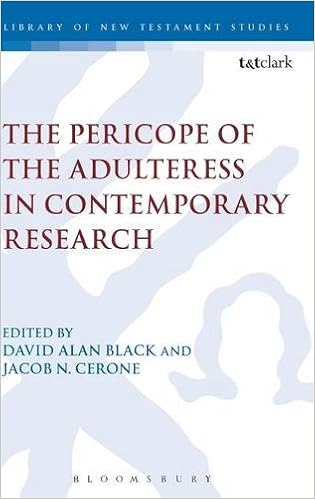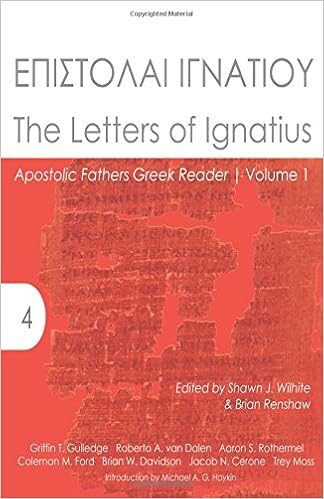For many of you, the title of this post will likely make you turn tail and run to another site in order to kill time before vacation starts. I wouldn’t blame you. After all, what is deponency and why should I care?
 For those of you that are still with me, “deponency” is a word from the Latin “de” + “pono” meaning “to lay aside.” The word is used to describe Latin words that “lay aside” the middle voice and are to be translated as active verbs. The term is later used to explain a tricky phenomenon in Greek. Certain words in Greek only have middle endings and do not have active endings: ερχομαι, δεχομαι, and πορευομαι, to name a few. Grammarians have used the category of deponency to say that words such as these have laid aside their middle meaning and should be translated as active verbs. My Greek Grammar I professor described deponent verbs as “wolves in sheep’s clothing.”
For those of you that are still with me, “deponency” is a word from the Latin “de” + “pono” meaning “to lay aside.” The word is used to describe Latin words that “lay aside” the middle voice and are to be translated as active verbs. The term is later used to explain a tricky phenomenon in Greek. Certain words in Greek only have middle endings and do not have active endings: ερχομαι, δεχομαι, and πορευομαι, to name a few. Grammarians have used the category of deponency to say that words such as these have laid aside their middle meaning and should be translated as active verbs. My Greek Grammar I professor described deponent verbs as “wolves in sheep’s clothing.”
Well, after eleven years of discussion within the SBL Biblical Greek Language and Linguistics Section, Cynthia Westfall, Jonathan Pennington, Bernard Taylor, and Rutger Allan have observed the corpse of deponency, said some parting words, and pronounced the category dead on Monday November 19th at 1:00PM; they killt it. As hostile as the terminology may seem, they made it clear from the outset that they mean no hostility towards those of the old guard. They are simply looking for a way forward in “how to teach the middle voice.”
The session was interesting. I thought it was a little rash to pronounce deponency dead. I just showed up to this party; but it turns out the party has dragged on like a bad SNL sketch. For this reason, I’m not capable of providing a lucid account of the proceedings here. Instead, I will give a few highlights.
- Pennington argued that the MP forms communicate subject effectedness.
- Deponency was never a category Greeks used to explain “deponent” verbs. It only came around after extensive contact with the Latin language.
- Pennington was also generous to the old grammarians. He specifically cites Dr. Black’s Learn to Read New Testament Greek and others and says that he was encouraged that they have treated the category with nuance lacking in previous grammars.
I will conclude with this. I eagerly await Dr. Black’s Advanced Greek Grammar class. We will be discussing current issues in Greek Grammar. On second thought, Dr. Black, I’m not sure if you intended to address the matter of deponency next semester…you might want to reconsider… it isn’t all that current anymore…its…well…dead 😉










In response to Dr. Black’s (http://www.daveblackonline.com/blog.htm) post:
“1:48 PM Please help me! I am exegeting the following words in Jacob Cerone’s latest post, which I linked to earlier today:
Pennington was also generous to the old grammarians. He specifically cites Dr. Black’s Learn to Read New Testament Greek and others and says that he was encouraged that they have treated the category with nuance lacking in previous grammars.
Now, my question is this:
Who is calling me an “older grammarian”?
Was it Jonathan Pennington himself — das Sitz im Leben des Sprechenden?
Or was it Jacob — das Sitz im Leben des Hörers?
Or was it someone in the seminar who might have spoken up but whose words are now lost to us — das Sitz im Leben der Audienz?
Sure glad I studied source criticism in seminary so I could know the right questions to ask. Or perhaps, the best answer to the question “Is Dave Black old?” might be the line Cullmann was famous for: “Schon, noch nicht”!”
HERE IS A QUOTE FROM PENNINGTON (I transcribed from the recording):
“In preparing for this, I thought I would go back and read many of the standard grammars of today that all of us use and see how they present the middle voice and particularly deponency. I’m happy to report that I was generally pleasantly surprised that there is actually more nuance and sensitivity in the way that most of these authors present middle voice and deponence. I think of Dan Wallace, Richard Young, and David Alan Black, in particular, that I looked at, and I would still disagree at a few crucial points. But I think that there is no need to be on the attack against the existing older grammars.”
Hey, I was reviewing our sessions on deponency and saw this. I wonder if David Alan Black protesteth too much: he and Wallace are exactly the same age. Baby boomers…. And while the press is always nice, I was not a presenter or a specialist on deponency–I was just the co-chair for the linguistics section. I was almost an innocent bystander.
It would seem as if I made two gaffs: calling my major professor old, and misattribution of presenters 🙂 At any rate, I’m happy to give the “press”!